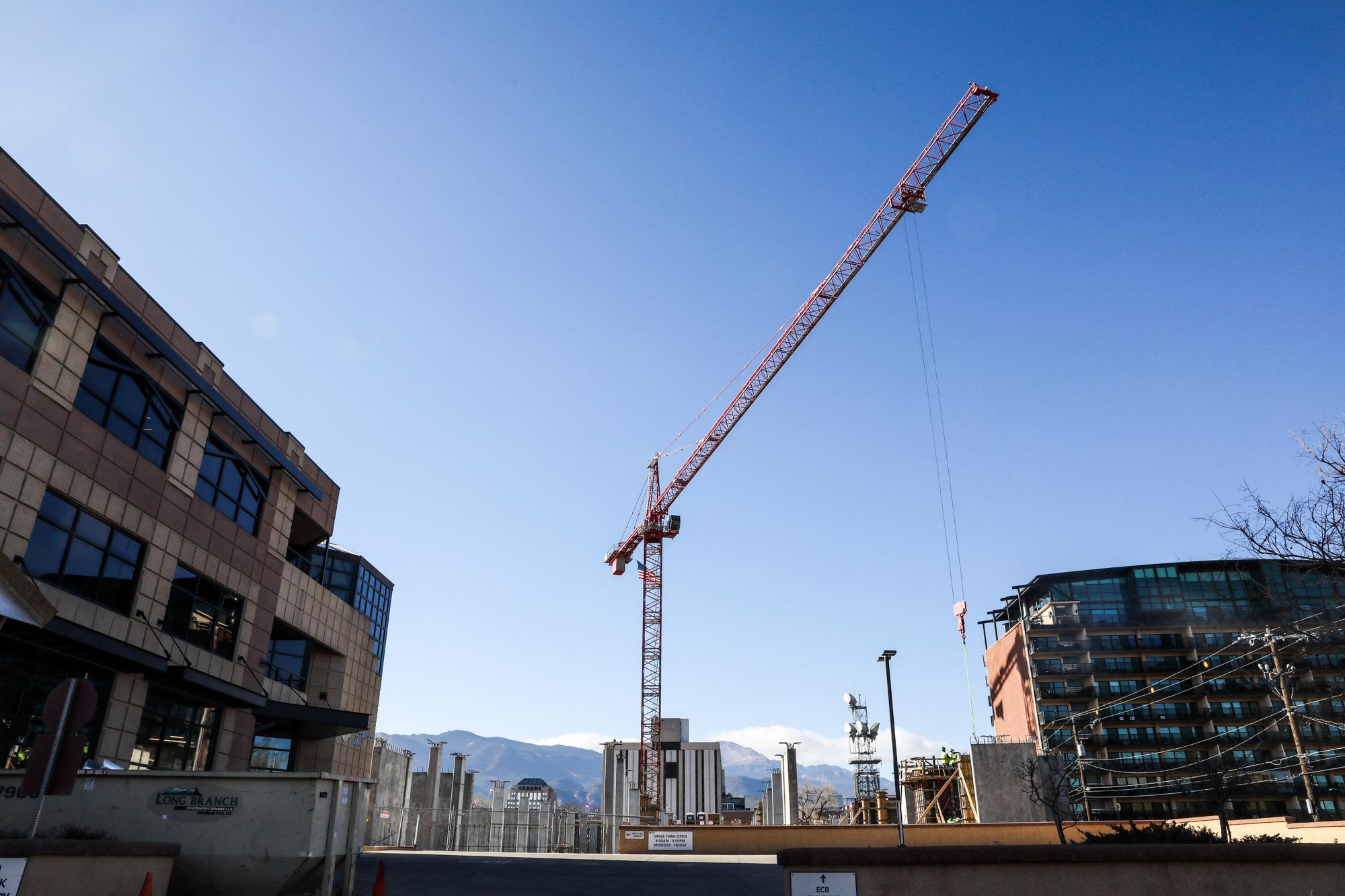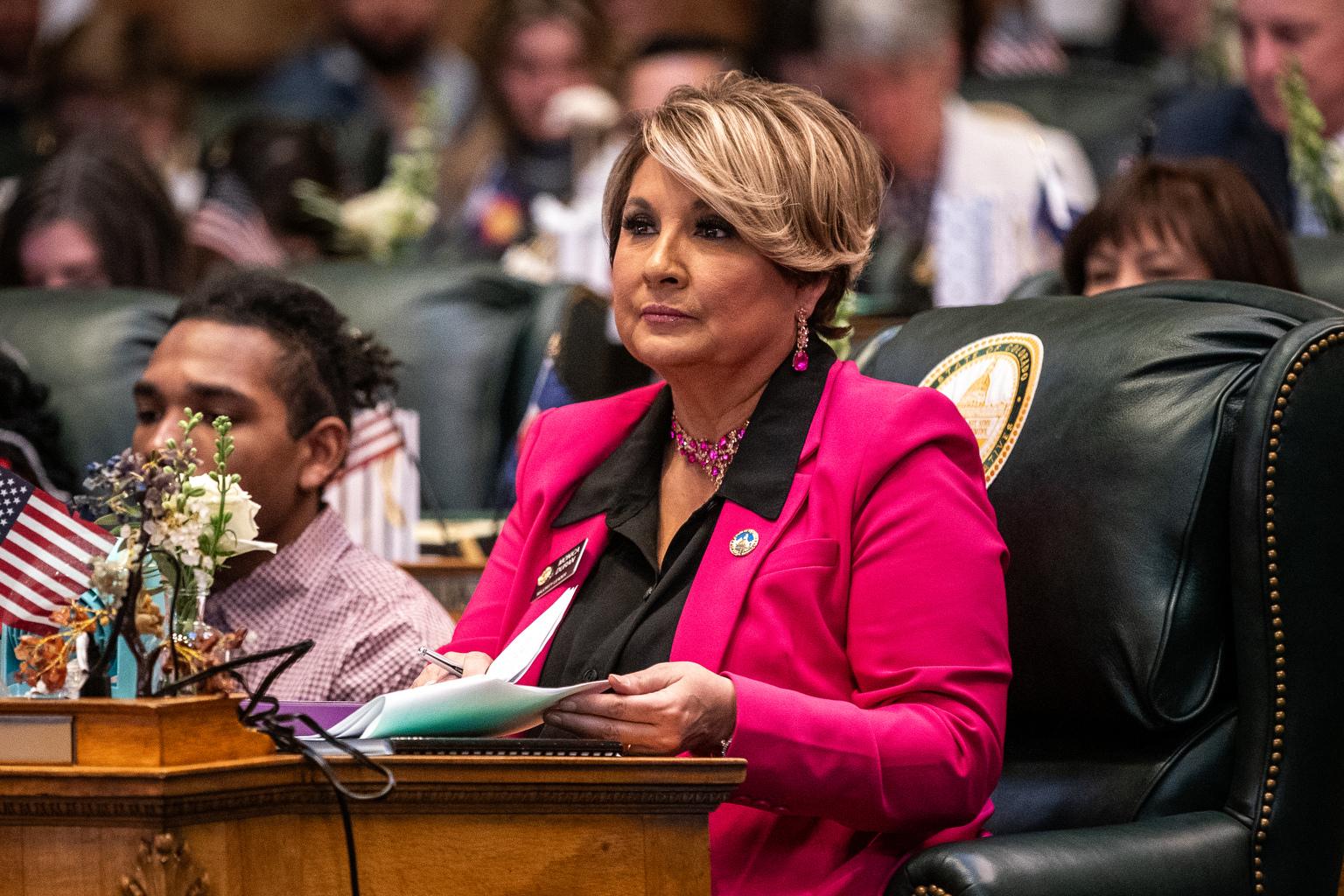
Dozens of Democratic state lawmakers have signed onto a proposal that could bring rent control to some Colorado cities.
The legislation, titled HB-1115, was introduced in the state House on Monday.
“The rent is too high in Colorado, and that’s not just for essential service workers,” said state Rep. Javier Mabrey, a first-year Democrat lawmaker and a prime sponsor.
He’s cosponsoring the bill with state Rep. Elizabeth Velasco, also a first-year Democrat, and Democratic state Sen. Robert Rodriguez.
“This is not just a Denver problem, and so this is why I have cosponsors on this bill from the Western Slope and Colorado Springs and places Democrats haven’t won election in decades,” Mabrey said.
Currently, Colorado’s local governments are not allowed to pass laws that limit the cost of rent in privately owned housing. If the bill eventually passes, individual city councils would be allowed to pass rent control or rent stabilization laws.
In Colorado and 31 other states, rent control is banned
Rent control laws already exist in some of the nation’s most populous — and expensive — cities, including New York City, Los Angeles and San Francisco. Under those policies, the local government generally dictates that rents in certain buildings can increase by only a certain percentage per year.
Colorado is one of 32 states that currently prevent local governments from controlling rents, according to the National Multifamily Housing Coalition.
State lawmakers banned rent control in 1981, after an effort to implement rent control in Boulder, according to a University of Colorado Law Review article.
Rent control is the subject of intense debate, with many economists arguing that the limits drive landlords out of the market and disrupt the housing supply, while supporters point to the direct benefits to renters who have faced astronomical cost increases, as well as the way that rising costs can destroy the social fabric of a neighborhood.
However, Polis is no fan of rent control, and some fear it can scare off developers
Even if it passes the legislature, the legislation would likely have to get support from Gov. Jared Polis, who has the power to veto bills.
Polis has not been supportive of rent control, previously forcing lawmakers to dump the idea of limiting rent at mobile home communities. Generally, Polis has pushed for a “supply-side” or market-based approach that focuses on building new housing.
In a statement, Polis’ office said he was “skeptical that rent control will create more housing stock, and locations with these policies often have the unintended consequences of higher rent." The statement underlined that the “rent is too damned high” and added that the administration is “always open to seeing specific proposals and letting legislators know if they have any concern.”
The statement also pointed to the state’s recent “historic investments” in housing.
Drew Hamrick, a vice president for the Apartment Association of Metro Denver, similarly warned that rent control would scare off new construction and landlords.
“Colorado’s prohibition against local governments enacting rent control ordinances for more than 50 years is both a recognition of the damage rent control can do to available housing and also an understanding that one local government’s housing policy negatively impacts neighboring communities,” Hamrick wrote.
Rent control has come up several times at the state legislature
Mabrey, who helped found an organization to help tenants fight eviction, said he’d already heard from elected officials in large cities on the Front Range and beyond who want to implement rent control.
Rent control has come up several times at the legislature in recent years. In 2019, state Sen. Rodriguez was a co-sponsor of a similar measure to allow local rent control and stabilization. That bill did not make it out of the Senate, though Democrats already controlled both chambers.
This year, Democrats have larger majorities in both the Senate and House, and Mabrey argued that rising prices will put more pressure on politicians to act.
In 2021, lawmakers moved to give cities limited power over rent prices, although only in new construction. A law passed that year authorizes cities to require designated affordable units in new builds, as long as they offer other options to developers too.









